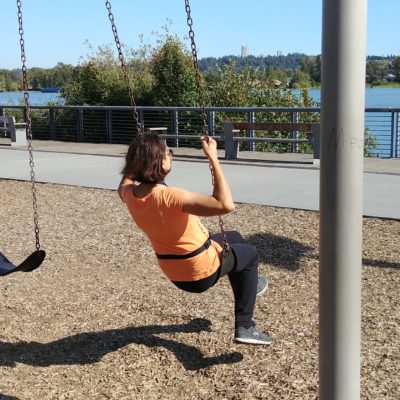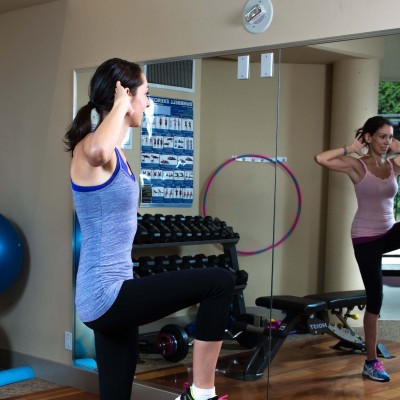How much protein do our bodies really need? How important is protein when we work out? And how soon after exercise should we consume it?
Getting straight answers is not easy, and there is a lot of misinformation floating around out there when it comes to this and other aspects of nutrition. To get the facts, I asked Registered Dietitian Gina Willson the questions above and more, and in this article I am sharing her answers and expert knowledge with you.
How much protein do we really need?
Since protein is the main building block of the body, it is essential that we get enough of it. The average healthy adult requires approximately 0.8 g of protein/per kg of body weight per day. (1) This means that if you weigh 150lb (or ~68kg), you need 54g.
This requirement increases to 1.1-1.4 g/kg for recreational athletes and 1.2-2.0 g/kg for endurance athletes.(2) Higher intakes may be necessary if someone is engaging in very intense activity.(3) If you are exercising somewhere around 1 hour per day, you will likely be in the “recreational athletes category”
Does eating protein help to build muscle?
The answer to this question is yes and no. Protein intake, together with exercise, helps to build and maintain muscle mass.(4) However, the body has a limit to how much protein it is able to use to make muscle. Studies have shown that in the period after exercise, the body can use approximately 15-25 g to build muscle.(4) Getting this amount can be as simple as having a cup of milk and a quarter cup of almonds after exercise. It is important to note that for the average person, consumption beyond this level will NOT result in an increase in muscle mass.(5)
What is the difference between plant and animal based proteins?
Most plant derived proteins do not contain all of the essential amino acids (the building blocks of protein) and are therefore not complete. There are some exceptions such as hemp and quinoa – these plants contain complete proteins. Animal proteins are complete as they contain all 9 essential amino acids.
How soon after exercise should I consume protein?
The body is most effective at utilizing protein to build muscle within 2 hours after exercising.(4) However, the body can continue to build muscle for up to 24 hours after exercising.(4) This is why it is important to incorporate it in meals and snacks throughout the day.
Should I be consuming a protein supplement?
Supplements are not necessary, but they can be a good source if whole, protein- rich foods are not available or convenient. Whether choosing whole foods or supplements, it is beneficial to look for high quality protein sources. “High quality” means that they have all nine essential amino acids, which are the building blocks of protein. Examples of high quality foods include milk, eggs, meat, quinoa, and hemp seeds. If you are choosing a supplement, it has been shown that whey protein is the most effective in building muscle.(5)
Purchasing tip: Opt for one that has little to no added sugar, as they can be quite sweet!
Are there any risks associated with a high protein diet?
It is possible to overdo it with protein. Guidelines suggest that you shouldn’t exceed taking more than 2.5 g of protein per kg of body weight per day.(6) There is some evidence to suggest anything in excess of this may cause harm, including kidney damage, dehydration and bone loss.(6)
The bottom line
Protein is an important building block of life, and it is important to incorporate it in your diet. Excessive use of supplements is not necessary and may cause more harm than good. Having a variety of whole food protein sources throughout the day and after exercise will help you ensure that you are fueling your body. It may be easier on your wallet too!
References:
- (2015, April). Quick nutrition check for protein. Retrieved from http://www.healthlinkbc.ca/healthyeating/protein.html
- Fink HH, Burgoon LA, Mikesky AE. (2009). Endurance and ultra-endurance athletes: practical applications in sports nutrition. Sudbury, MA: Jones and Bartlett.
- Phillips SM. Dietary protein requirements and adaptive advantages in athletes. Br J Nutr. 2012; 108(Suppl 2): S158-167.
- (2016, February). Nutrition and athletic performance. Retrieved from https://www.dietitians.ca/Downloads/Public/noap-position-paper.aspx
- (2016, June 10). Sports supplements- get the facts. Retrieved from http://www.dietitians.ca/Your-Health/Nutrition-A-Z/Sports-Nutrition-(Adult)/Sports-Supplements.aspx
- Walrand S, Short KR, Bigelow ML, Sweatt AJ, Hutson SM, Nair KS. Functional impact of high protein intake on healthy elderly people. Am J Physiol Endocrinol Metab. 2008; 295:E921-E928.
About Gina Willson
 Gina is a Registered Dietitian who is passionate about healthy eating and supporting local. She loves painting, hiking, shopping at farmer’s markets and also makes some of the most delicious macaroons I’ve ever had! Gina also understands how crucial healthy nutrition is to help maintain a good body weight and excellent health! She is incredibly knowledgeable and bases her facts in science, which makes her my go-to source for any nutrition questions.
Gina is a Registered Dietitian who is passionate about healthy eating and supporting local. She loves painting, hiking, shopping at farmer’s markets and also makes some of the most delicious macaroons I’ve ever had! Gina also understands how crucial healthy nutrition is to help maintain a good body weight and excellent health! She is incredibly knowledgeable and bases her facts in science, which makes her my go-to source for any nutrition questions.




